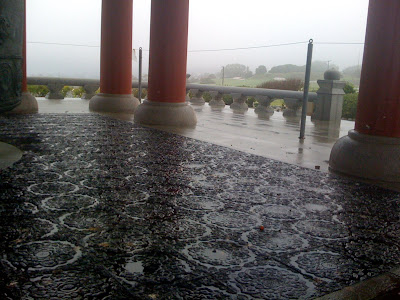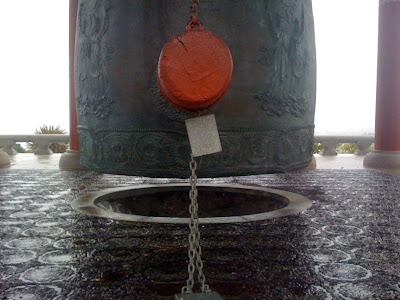 Fifties Iron Lung Ward, from Google
Fifties Iron Lung Ward, from GoogleI was lying in bed one night in mid-December before the solstice, when the day’s supply of light was still miserably shrinking. It was cold. I’d turned the furnace down to 62, resolved to be an ecological grownup, and the heap of comforters on top of me was so heavy that I got an isometric workout every time I tried to turn over.
This was before the snow, the world outside the clamped-down window dark, impenetrable and forbidding. Those kinds of nights, silence and dark are the enemy: one’s thoughts turn dangerously to end games and angst.
I found myself mumbling, it’s like an iron lung in here. I’m trapped in an iron lung. Until when -- April?
Claustrophobia and dread puffed up like giant anxiety airbags, avoiding the crash but threatening their own sweaty suffocation.
This is the start of my next column for East Village Magazine. It'll be out Jan. 8. Oh what the hell, here's the rest of it. I slid one hand out and reached for the radio. It’s designed with a little bump on the “sleep” button so you can find it in the dark. Hmm, 1:17 a.m. BBC as usual, all night every night. I wanted hypnotizing cricket scores, but this night it was all foreboding and fearful – a litany of bee disease, dying coral reefs, starvation, terrorism in the usual failing states.
Damn, I muttered, don’t they know we’re trying to fall asleep out here? Cussing, I rolled the old-fashioned dial to the MSU classical station. I landed just in time for a lullaby – an actual lullaby – by George Gershwin, who I’m sure had a few sleepless nights of his own. (I’m listening to it now – a nine-minute version by pianist Alicia Zizzo -- it’s lovely and I’m thankful.)
Then there was a nice long piece by Georg Telemann, who, the mellow-voiced announcer murmured, was more popular than his contemporary Mozart in their time. Hm, how about that, I thought. I relaxed, and before the 60 minutes of “sleep” radio ran out, my fretful brain surrendered to the music, and I slept.
The next day, I Googled “iron lung.”
With a tendency toward claustrophobia, I’ve always been horrified and fascinated by the iron lung. People my age well remember the tubular, wheezing contraption from the Fifties when polio paralyzed the bodies, including, cruelly, the breathing muscles, of thousands of kids.
Some of them were saved by the iron lung. According to Wikipedia, at the height of the polio outbreaks, “entire hospital wards were filled with rows of iron lungs,” the polio victims’ poor heads protruding from one end, sad little pillows under their necks, their hair splayed out and a system of disconsolate mirrors overhead. When you went to the movies, they’d show films of those awful wards, and then they’d pass around a can for donations to the March of Dimes.
Things you might not know: the machine was invented by Phillip Drinker and Louis Shaw (thus its earlier name, the Drinker Respirator) originally for treatment of coal gas poisoning. The first one was used in 1928 on a child in Boston.
Most of those polio victims died, but some lived a long, long time. The family of Barton Hebert of Covington, Louisiana donated his iron lung to the Centers for Disease Control museum after he died in 2003 after almost 50 years in it.
Martha Mason of Lattimore, North Carolina, died at 71 just last May after more than 60 years in her iron lung. She wrote a best-selling memoir about her life called Breath. After she contracted polio three days after her brother died from the disease, she says in a 2005 YouTube video, doctors put her in an iron lung and decreed she’d be dead in a year.
She asserted her curiosity saved her. From that breath-sustaining prison, she managed to get a degree in English from Wake Forest University (number one in her class). She went back to Lattimore where she read and wrote voraciously, welcomed many visitors and hosted dinner parties.
In fact, about 30 people in the U.S. still are encased in iron lungs, even though lighter, less restricting ventilators are available. A New York Times obituary
(Mason Obituary) said Mason could have opted for a different kind of intubation in recent decades, but she chose her familiar iron house because of the freedom it gave her – “it let her breathe without tubes in her throat, incisions or hospital stays…it took no professional training to operate, letting her remain mistress of her own house, with just two aides assisting her.”
Mason’s story knocks me out. It chastens me: January in Flint isn’t really like an iron lung, and it’s an insult to those polio survivors to suggest so.
Their amazing resilience, in fact, inspires me. (Ahh, inspires -- from the Greek “to breathe.”) I can learn from them how to make each day, even the frozen-up January ones, fly by. I have choices.
I turned to Facebook once again to ask Flint friends for January strategies. The always-endearing Michael Absher said, “I swear a lot and kiss as many pretty girls as possible.” Gary Weisserman advised, “Burger@ the Torch.” Renee West smiley-faced, “anti-depressants.” Dennis Brownfield reported he walks his Jack Russell terrier in his winter coat down Woodlawn Park Drive after dark and enjoys the beautifully lit houses.
My friend Teddy says her alleviating secret is “happiness lights.” She keeps corners of the house brightly illuminated, trying to stay ahead of Dennis, her frugal man who keeps turning them off. I rely on color – my rainbow “postage-stamp” quilt cheers me up, and I’ve got a big poster of wildflowers framed above the bed. In January you’ll find me decked out in red, yellow, lavender and green – often all at the same time. Don’t mock me – it’s what keeps me from kicking the cats.
Whatever we do to get through January, it’s a compromise between sustaining cheer and respecting the Earth that tilts us toward dark to begin with. And that same earth will tilt us right out of the dark again, come spring.
In the meantime, I’m keeping my radio dial away from the BBC. And I’m very glad that I can breathe, on my own, even in the darkest winter days.






 Fifties Iron Lung Ward, from Google
Fifties Iron Lung Ward, from Google
 View from the front deck Dec. 18
View from the front deck Dec. 18
